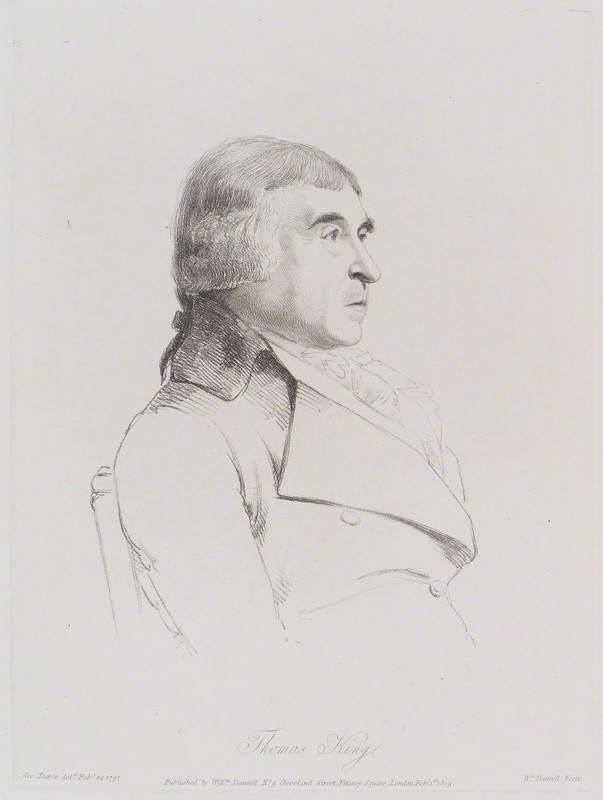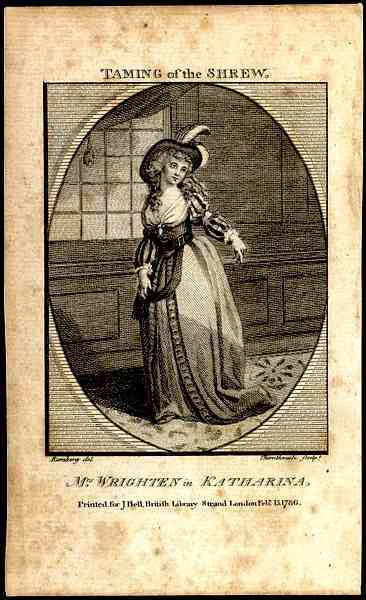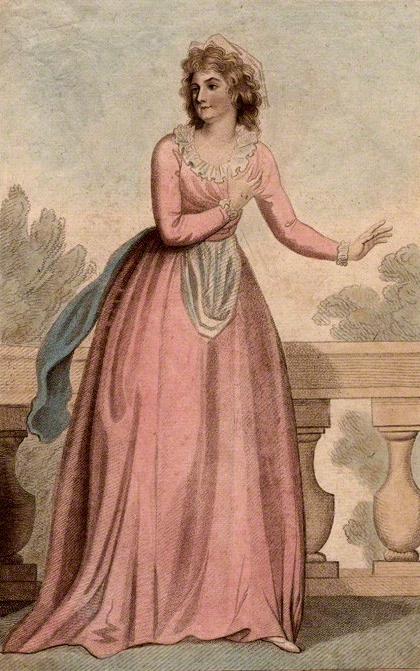|
A School For Greybeards
''A School for Greybeards'' is a 1786 comedy play by the British writer Hannah Cowley (writer), Hannah Cowley. The original cast included Thomas King (actor), Thomas King as Don Alexis, John Philip Kemble as Don Henry, William Parsons (actor), William Parsons as Don Gasper, John Bannister (actor), John Bannister as Don Sebastian, John Palmer (actor), John Palmer as Don Octavio, Mary Ann Wrighten as Rachel, Ann Maria Crouch as Donna Maria and Elizabeth Farren as Donna Seraphina.Hogan p.934 References Bibliography * Nicoll, Allardyce. ''A History of English Drama 1660–1900: Volume III''. Cambridge University Press, 2009. * Hogan, C.B (ed.) ''The London Stage, 1660–1800: Volume V''. Southern Illinois University Press, 1968. 1786 plays Comedy plays West End plays Plays by Hannah Cowley {{1780s-play-stub ... [...More Info...] [...Related Items...] OR: [Wikipedia] [Google] [Baidu] |
Hannah Cowley (writer)
Hannah Cowley (14 March 1743 – 11 March 1809) was an English playwright and poet. Although Cowley's plays and poetry did not enjoy wide popularity after the 19th century, critic Melinda Finberg rates her as "one of the foremost playwrights of the late eighteenth century" whose "skill in writing fluid, sparkling dialogue and creating sprightly, memorable comic characters compares favourably with her better-known contemporaries, Goldsmith and Sheridan." Cowley's plays were produced frequently in her lifetime. The major themes of her plays – including her first, ''The Runaway'' (1776), and her major success, which is being revived, ''The Belle's Stratagem'' (1780) – revolve around marriage and how women strive to overcome the injustices imposed by family life and social custom. Early success Born Hannah Parkhouse, she was the daughter of Hannah (née Richards) and Philip Parkhouse, a bookseller in Tiverton, Devon. Sources disagree about some details of her married life, cit ... [...More Info...] [...Related Items...] OR: [Wikipedia] [Google] [Baidu] |
Theatre Royal, Drury Lane
The Theatre Royal, Drury Lane, commonly known as Drury Lane, is a West End theatre and Grade I listed building in Covent Garden, London, England. The building faces Catherine Street (earlier named Bridges or Brydges Street) and backs onto Drury Lane. The building is the most recent in a line of four theatres which were built at the same location, the earliest of which dated back to 1663, making it the oldest theatre site in London still in use. According to the author Peter Thomson, for its first two centuries, Drury Lane could "reasonably have claimed to be London's leading theatre". For most of that time, it was one of a handful of patent theatres, granted monopoly rights to the production of "legitimate" drama in London (meaning spoken plays, rather than opera, dance, concerts, or plays with music). The first theatre on the site was built at the behest of Thomas Killigrew in the early 1660s, when theatres were allowed to reopen during the English Restoration. Initially ... [...More Info...] [...Related Items...] OR: [Wikipedia] [Google] [Baidu] |
London
London is the capital and largest city of England and the United Kingdom, with a population of just under 9 million. It stands on the River Thames in south-east England at the head of a estuary down to the North Sea, and has been a major settlement for two millennia. The City of London, its ancient core and financial centre, was founded by the Romans as '' Londinium'' and retains its medieval boundaries.See also: Independent city § National capitals The City of Westminster, to the west of the City of London, has for centuries hosted the national government and parliament. Since the 19th century, the name "London" has also referred to the metropolis around this core, historically split between the counties of Middlesex, Essex, Surrey, Kent, and Hertfordshire, which largely comprises Greater London, governed by the Greater London Authority.The Greater London Authority consists of the Mayor of London and the London Assembly. The London Mayor is distinguished fr ... [...More Info...] [...Related Items...] OR: [Wikipedia] [Google] [Baidu] |
Comedy Play
Comedy is a genre of dramatic performance having a light or humorous tone that depicts amusing incidents and in which the characters ultimately triumph over adversity. For ancient Greeks and Romans, a comedy was a stage-play with a happy ending. In the Middle Ages, the term expanded to include narrative poems with happy endings and a lighter tone. In this sense Dante used the term in the title of his poem, the ''Divine Comedy'' (Italian: ''Divina Commedia''). The phenomena connected with laughter and that which provokes it have been carefully investigated by psychologists. The predominating characteristics are incongruity or contrast in the object, and shock or emotional seizure on the part of the subject. It has also been held that the feeling of superiority is an essential factor: thus Thomas Hobbes speaks of laughter as a "sudden glory." Modern investigators have paid much attention to the origin both of laughter and of smiling, as well as the development of the "play insti ... [...More Info...] [...Related Items...] OR: [Wikipedia] [Google] [Baidu] |
Thomas King (actor)
Thomas King (1730–1805) was an English actor, known also as a theatre manager and dramatist. Early life Born 20 August 1730, in the parish of St George's, Hanover Square, London, where his father was a tradesman, he was educated at a grammar school in Yorkshire, and then at Westminster School. Articled to a London solicitor, he was taken to a dramatic school, and in 1747, with Edward Shuter, he ran away, and joined a travelling company at Tunbridge. He then had a period acting in barns, in the course of which (June 1748) he played in a booth at Windsor, directed by Richard Yates. London actor King was seen by David Garrick, who, on the recommendation of Yates, engaged him for Drury Lane. His first part was the Herald in ''King Lear''. On 19 October 1748, when Philip Massinger's '' New Way to Pay Old Debts'' was given for the first time at Drury Lane, he played Allworth. He was in the same season the original Murza in Samuel Johnson's ''Irene'', and played a part in ''The Hen- ... [...More Info...] [...Related Items...] OR: [Wikipedia] [Google] [Baidu] |
John Philip Kemble
John Philip Kemble (1 February 1757 – 26 February 1823) was a British actor. He was born into a theatrical family as the eldest son of Roger Kemble, actor-manager of a touring troupe. His elder sister Sarah Siddons achieved fame with him on the stage of the Theatre Royal, Drury Lane. His other siblings, Charles Kemble, Stephen Kemble, Ann Hatton, and Elizabeth Whitlock, also enjoyed success on the stage. Early life The second child of Roger Kemble – the manager of the travelling theatre company the Warwickshire Company of Comedians – he was born at Prescot, Lancashire. John Kemble article at His mother being a |
William Parsons (actor)
William Parsons (29 February 1736 – 3 February 1795) was a British actor and painter in the mid to late eighteenth century. He appeared mostly at Theatre Royal, Drury Lane, Drury Lane and Theatre Royal Haymarket, Haymarket in minor to supporting roles, but also had prominent roles in plays like ''Volpone'' and ''Hamlet''. Early life Parsons was born to William and Elizabeth (née Latter) Parsons in 1736. His father William did carpentry work in Bow Lane, Cheapside and City of London; his mother Elizabeth was from Maidstone. Parsons attended St Paul's School where surveyor Sir Henry Cheere or Cheke was his instructor. Parsons took part in amateur entertainment with William Powell (English actor), William Powell and Charles Holland (actor), Charles Holland. In 1756, Parsons played Kent in King Lear in Haymarket. Professional career Earlier roles Parsons's first professional role was that of Southampton in poet Henry Jones (poet), Henry Jones's ''Earl of Essex'' play in Yo ... [...More Info...] [...Related Items...] OR: [Wikipedia] [Google] [Baidu] |
John Bannister (actor)
John Bannister (12 May 1760 – 7 November 1836), (also called 'Jack' Bannister), English actor and theatre manager. The principal source for his life are his own ''Memoirs'', and as a leading performer his career is well documented. Biography John Bannister was born at Deptford. He was the son of Charles Bannister, also an actor. He first studied to be a painter, but soon took to the stage. His first formal appearance was at the Haymarket Theatre in 1778 as Dick in Arthur Murphy's farce ''The Apprentice''. The same year at Theatre Royal, Drury Lane he played in James Miller's version of Voltaire's ''Mahomet'' the part of Zaphna, which he had studied under David Garrick. The Palmira of the cast was Mrs Robinson ("Perdita"). His reputation increased with his personification of Don Whiskerando in ''The Critic'' in 1779, and he was well known in the character of Joseph Surface in ''The School for Scandal''. Bannister married Elizabeth Harper on 26 January 1783 who was a skil ... [...More Info...] [...Related Items...] OR: [Wikipedia] [Google] [Baidu] |
John Palmer (actor)
John Palmer (c. 1742–1798) was an actor on the English stage in the eighteenth century. There was also another John Palmer (1728–1768) who was known as Gentleman Palmer. Richard Brinsley Sheridan nicknamed him Plausible Jack. Birth and youth He was born in the parish of St Luke's, Old Street, London, about 1742, was son of a private soldier. In 1759 the father served under the Marquis of Granby, and subsequently, on the marquis's recommendation, became a bill-sticker and doorkeeper at Drury Lane Theatre in London. When about eighteen John recited the parts of George Barnwell and Mercutio to David Garrick, but Garrick found no promise in him, and joined his father in urging him to enter the army. Garrick even got a small military appointment for him; but Palmer refused to follow his counsel, and entered the shop of a print-seller on Ludgate Hill. On 20 May 1762, for the benefit of his father and three others, he made his first appearance on any stage, playing Buck in the ''En ... [...More Info...] [...Related Items...] OR: [Wikipedia] [Google] [Baidu] |
Mary Ann Wrighten
Mary Ann Wrighten Pownall, née Mary Matthews, (b. 1751, d. 12 August 1796) was an England, English singer, actress and composer. Life Mary Ann Matthews was born in England of a jeweler father and shop-keeper mother. She was apprenticed to organist Charley Griffith where she learned music, and made her debut on the stage at about age 15. She married actor James Wrighten in about 1769 in Birmingham, and the couple came to London to work in Drury Lane, where she quickly became successful as a singer and actress with Garrick and Sheridan at Drury Lane and Covent Garden. The couple had two daughters, Mary and Charlotte. They divorced in 1786 in a public scandal, and Mary Ann Wrighten emigrated to the United States to work for theater manager John Henry. Her first American appearance was at the Southwark Theater in Philadelphia in 1792, billed as Mrs. (Hugh) Pownall. She also appeared in New York City, and settled in Charleston, South Carolina, Charleston, where she died during a yell ... [...More Info...] [...Related Items...] OR: [Wikipedia] [Google] [Baidu] |
Ann Maria Crouch
Anna Maria Crouch (20 April 1763 – 2 October 1805), often referred to as Mrs Crouch, was a singer and stage actress in the London theatre. She was (briefly) a mistress of George, Prince of Wales. Biography Born Anna Maria Phillips, she first went on stage as a child, acting and singing. Articled to Thomas Linley, she made her debut at Drury Lane theatre in 1780 as Mandane in Thomas Arne's '' Artaxerxes'', and became a principal in the regular company of the theatre under the management of Sheridan and Linley. In 1781 she made a great success as the heroine in Charles Dibdin's ''Lionel and Clarissa''. She was a notable Ophelia, Olivia and Celia. Her Polly Peachum in ''The Beggar's Opera'' was well known. In 1787 her stage partnership began with the Irish actor and singer, Michael Kelly, on his arrival in London with Stephen and Nancy Storace from the Viennese court. Marriage and affair In 1784 she had married a naval lieutenant named Crouch. In 1790 she was at Brighton to p ... [...More Info...] [...Related Items...] OR: [Wikipedia] [Google] [Baidu] |
Elizabeth Farren
Elizabeth Farren (c. 175923 April 1829) was an Irish actress of the late 18th century. Born in Cork in 1759 her father, George Farren was a surgeon. His drinking habits brought on early death and his widow returned to Liverpool. Her mother went on the stage to support herself and her children. Elizabeth first appeared on the London stage in 1777 as Miss Hardcastle in ''She Stoops to Conquer'' and the following year appeared at Drury Lane which, along with the Haymarket Theatre became her primary venues for the rest of her acting career. She had over 100 characters in her repertoire including Shakespeare and various contemporary comedies and dramas. She was often compared to Frances Abington, who was her only real rival. Her last appearance was in April 1797, two months before her marriage to Edward Smith-Stanley, 12th Earl of Derby. They had a son and two daughters. Early life Elizabeth (sometimes Eliza) Farren was the daughter of George Farren of Cork, Ireland, a surgeon and ... [...More Info...] [...Related Items...] OR: [Wikipedia] [Google] [Baidu] |






